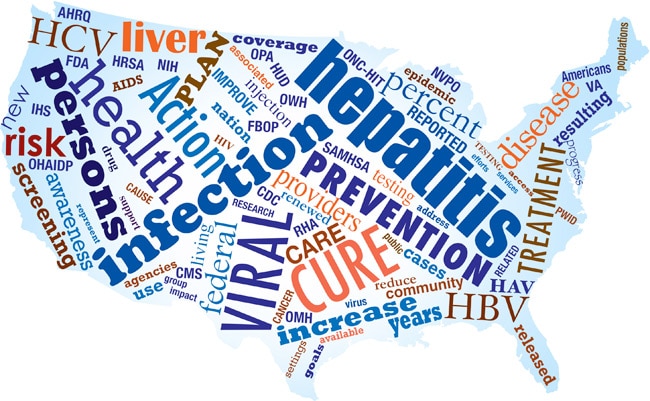Injection drug use is on the rise around the country, feeding an increase in cases of the blood-borne liver disease hepatitis C. The Centers for Disease control says that, nationally, hepatitis C infections rose 150 percent from 2010 to 2013.
But the spread of the disease in Alabama is hard to measure. Doctors and health care officials are trying new ways to determine the true spread of the disease here in Alabama — doctors like Jim Galbraith, an emergency room physician at the University of Alabama at Birmingham. Ashley Cleek reports:
In the emergency room of UAB’s University Hospital, an older African-American man lies in a hospital gown, breathing heavily. He’s a baby boomer – born between 1945 and 1965.
“Have you ever been tested for hepatitis C in the past?” asks nurse Jonathan Borella.
Although the patient says he has, Borella says that the hospital offers a free hepatitis C test. The patient tells Borella to go ahead and test him for hepatitis C.
While this may sound routine, it’s actually pretty revolutionary.
This is called opt-out testing, and it’s been key to de-stigmatizing HIV tests. It was Dr. Galbraith’s idea to expand opt-out to hepatitis C. In fact, Galbraith says, HIV and hepatitis C are linked in several ways.
“One, in the vulnerable populations that were effected in both groups,” Galbraith says. “Two, the fact that [hepatitis C, like HIV] is often silent and easy to miss.”
Since Galbraith started testing emergency room patients in 2013, he and his team have screened thousands of baby boomers and confirmed an estimated 800 chronic hepatitis C infections.
Galbraith says there are two waves of hepatitis C infection. The first wave is the baby boomers, who often contracted the virus from IV drug use in the 70s and 80s and blood transfusions before those were screened. That wave is crashing now, as people with hepatitis C are getting liver cancer.
A second wave is gathering, Galbraith says. There is a whole population that is not being screened for hepatitis C — injection drug users.
“The stigma,” Galbraith explains, “precludes doctors and patients from participating in screening and becoming aware of their status.”
Across the U.S. as the use of heroin has risen, so have hepatitis C infections.
“It is very concerning,” says Mark Wilson, who heads of the Jefferson County Department of Health. Wilson says he’s worried that Alabama is quietly experiencing an outbreak.
“I am pretty sure we have thousands of people in Jefferson County that are using needles and a lot of those people are sharing needles,” explains Wilson, “so it’s potentially a pretty big problem.”
One of those people is Cody Standard. Standard injected heroin for years. He says that most pharmacies in Jefferson County wouldn’t sell him needles, so Standard and his friends either shared needles or found them.
“I decide to walk down the street and find a needle laying on the ground, and of course I find them,” Standard explains. He says that he would use the needles, “Without a second thought, yes.”
“I have taken it back to the house and cleaned it out with some bleach. I have had it where I am so dope-sick, I’ve sat on the side of the road, and pulled up some water out of my water bottle and shot the dope right there on the side of the road.”
The CDC reports that 70 percent of people who have injected drugs for over a year have hepatitis C. That includes Standard.
“I am hep C positive,” he admits. “I don’t know when I got it.”
The CDC also reports that over half of those infected with hepatitis C don’t know they have it, so their cases aren’t reported to the state.
“It’s a huge problem,” says John Ward, the director of the Division of Viral Hepatitis at the Centers for Disease Control.
“What it means when you have low numbers is that you run the risk of under-appreciating the severity of a health problem for the state and don’t direct resources accordingly,” Ward explains.
Dr. Mary McIntyre, Assistant State Health Officer for Disease Control and Prevention at the Alabama Department of Public Health, says getting people tested is difficult.
“To get results, we have to have people doing testing,” McIntyre explains, “and that’s in the provider’s realm.”
Only acute (newly acquired) hepatitis C is mandated to be reported to the state. Chronic cases, like those documented by Dr. Galbraith, are not reported to the State Health Department. Currently, in 2014, the state of Alabama reports 35 cases of acute hepatitis C.
“Now whether or not there’s more out there, I don’t know,” McIntyre says. “I can tell you that based on the statistics … we can only think that there are probably more out there.“
McIntyre urges health care providers to test anyone they suspect of having hepatitis C.
“All of this is starting to point toward a need to have a universal screening requirement,” Galbraith says.
Galbraith hopes to expand his testing to include anyone over 18 who comes into the emergency room. Maybe this way, he says, we can find out how widespread hepatitis C actually is.

